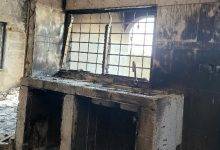
The Supreme Court yesterday gave Child Rights International (CRI) 14 days to file legal arguments in the case, in which the organisation is seeking the court to declare as unconstitutional the plight of street children in Ghana.
A seven-member panel of judges, presided over by Justice Paul Baffoe-Bonnie, also gave the Attorney-General, 14 days to file a response after the plaintiff had filed its legal arguments.
The case has been adjourned until further notice.
The CRI was represented by Wisdom Ankah, while the Attorney General was represented by Grace Oppong, a Principal State Attorney. The organisation had already filed seven legal issues for determination before the SC.
Led by its Executive Director, Bright Appiah, it is the case of CRI, the government was violating the constitutional right of street children to education, health, human dignity, and denying them social and economic rights.
The joint memorandum of issues agreed by the parties was filed pursuant to Rule 60 of the Supreme Court Rules, 1996 (C.I.16) following the directive of the Supreme Court.
The seven issues agreed by the parties include: Whether or not the plaintiff has properly invoked the Original Jurisdiction of the Supreme Court under Articles 2(1) and 130(1)? Whether or not the reliefs sought by the Plaintiff are justiciable? And whether the current conditions of children living on the streets in Ghana violate the law.
The applicant, whose work seeks to protect and safeguard the social, educational and constitutional rights of children, is asking the court for a number of reliefs and declaration.
Among these are the declaration that the Government of Ghana is in breach of Articles 25(a), 28 (1) (a), (d), (2) (3) (4), 13(1) and 37 of the 1992 Constitution for not taking urgent steps to ensure that children do not engage in work that constitutes a threat to their health, education or development, and that children are not deprived of medical treatment, education or any social or economic benefit.
Again, the plaintiff is seeking an order directed at government to define by law penalties for child exploitation for begging or other forms of economic exploitation to punish all those who may try to benefit or gain money from children’s work; an order directed at government to improve the law on healthcare, by defining by law the provision of free primary health services to all poor children, children living in street situation or children in emergency situations.
Additionally, the applicant is seeking an order directed at the government to provide rules and procedures to be followed for the provision of free basic medical services to poor children, children in street situation or children in emergencies.
Again, it wants mechanism to include agencies that can ask for this help on behalf of children and an order to implement mechanisms to control and enforce the legal framework guaranteeing education for all children.
The plaintiff is further seeking order directed at the government for procedures related to school enrolment of children in street situations and their provision with the necessary didactic material.
The CRI is also seeking an order for government to submit to the court, not later than three months from the date of final judgment, a plan of action detailing all the steps, strategies, and measurable targets by which the defendants undertake to obey and perform the orders contained in the reliefs the applicant is seeking.
BY MALIK SULLEMANA







